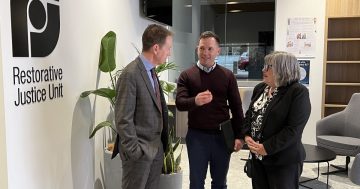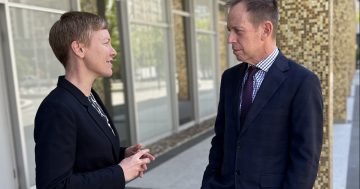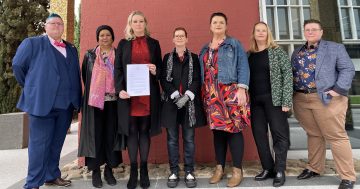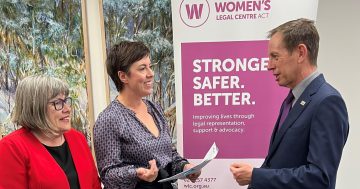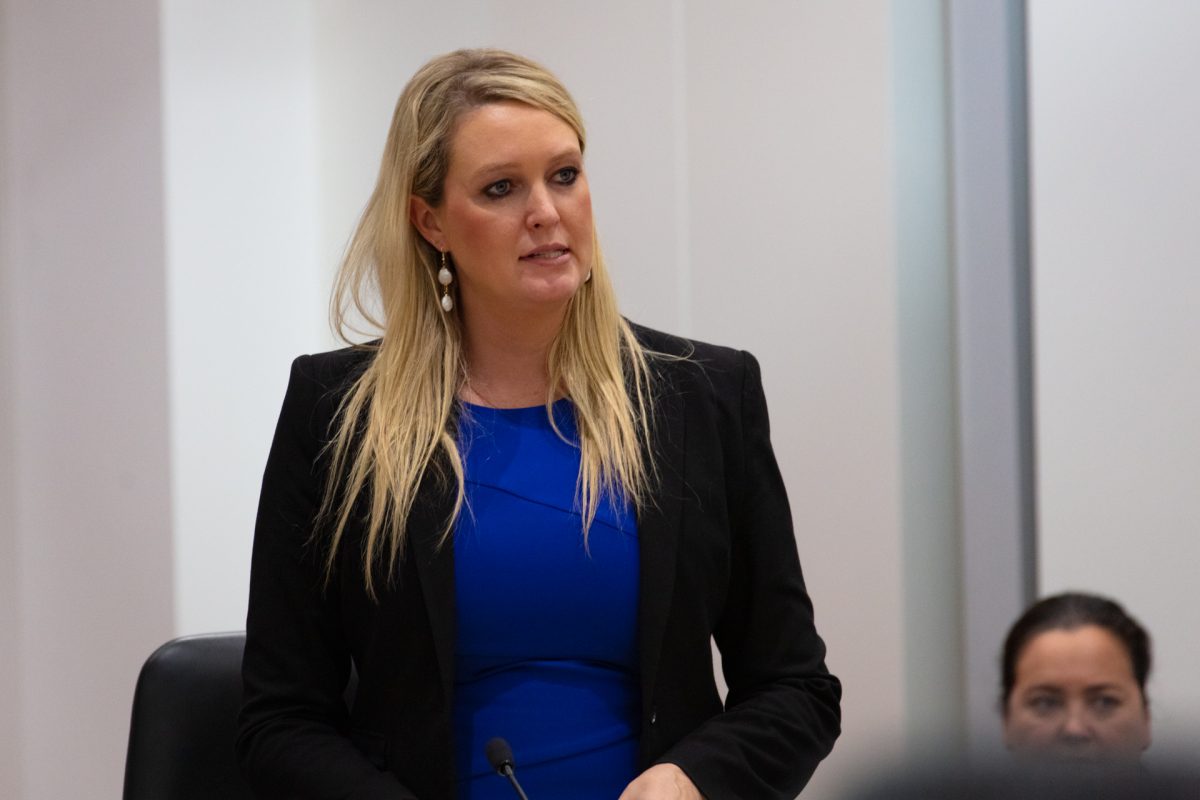
Dr Marisa Paterson MLA has called on restorative justice practices to be expanded in the Territory, particularly for victim-survivors of family and sexual violence. Photo: Thomas Lucraft.
Victim-survivors of sexual assault and family violence could no longer have to go through court proceedings to receive a form of justice under a proposed change to restorative justice practices in the ACT.
The government has committed to examining how to further expand its restorative justice practices, currently available for serious offences only after legal proceedings have begun, and the offender has either pleaded or been found guilty.
Murrumbidgee MLA Dr Marisa Paterson introduced a motion to the Legislative Assembly calling on the Territory to “continue to deepen” its restorative justice practices, which have been legislated for the past 20 years.
“There are many reasons people don’t report sexual violence and the criminal justice is a significant barrier to this,” she said.
“The traditional justice pathway is not working for many victim-survivors, and we need to think outside the box, to be thinking of multiple pathways and methods where victim-survivors can receive and pursue justice.
“At the heart of restorative justice is the simple principle that while crime harms, justice should heal.”
She called on the ACT Government to not only conduct a scoping study to expand restorative justice criteria, but to also place restorative justice as an official alternate and the potential for a community-based restorative justice centre.
Dr Paterson argued justice for victim-survivors could come from more than just the police and courts process. She said the 2021 Sexual Assault Prevention and Response Steering Committee report noted the current justice system didn’t currently appropriately support victim-survivors.
“The key mechanism for holding perpetrators to account is traditionally through the criminal justice system, [but] the figures make it clear this mechanism is not effective in most cases,” the report stated.
The report had recommended the government investigate options to expand restorative justice, including amending eligibility criteria, and that had been agreed to in principle.
“Now it’s time to deliver [that] alternative pathway,” Dr Paterson said.
“The justice system is so much more than court dates, juries and prison – we have an excellent opportunity to expand on what we think of when it comes to justice, restorative justice can be an integral part of that.”
Canberra Restorative Community director Dr Holly Northam said restorative justice was about bringing healing to relationships between offenders and victim-survivors.
While healing may not always be possible, it provided a platform for victim-survivors to explain how the offending impacted on them, and gave the offender the chance to face and apologise for the harm caused.
Dr Northam said expanding restorative justice to community settings gave people who didn’t want to go through the criminal justice processes to find resolution.
“We know of many women and men who have been assaulted don’t want to go to police because the process causes them more harm than good,” she said.
“This means crimes are going unrecognised and unreported, and the people causing the harm are getting away with it.”
She described the current eligibility requirement that a case had to be before the courts before restorative justice could be accessed as “unjust”, as it required victim-survivors to open themselves up to the possibility of being retraumatised by the process.
Whereas restorative justice is about giving the victim the chance to explain the context and impact of the harm, and making sure offenders understand the full extent of their actions so they can make different choices in the future.
“It gives the most vulnerable people, the people who have been harmed or caused the harm, a chance to have a voice and for healing to begin,” Dr Northam said.
“This isn’t about people getting off free without penalties … but for it to be appropriate to the situation.”
Attorney-General Shane Rattenbury noted reviews into the Territory’s restorative justice system were already underway, with possible reforms, expansions and improvements to be considered.
He noted phase three of the program, to facilitate referrals for instances of family and sexual violence, had worked with 21 victim-survivors of sexual violence and 195 victims of family violence between November 2018 and the end of 2022.
“Despite the success, we must always look for ways to improve,” Mr Rattenbury said.
An analysis by the Australian Institute of Criminology is already underway into the scheme’s operation regarding family and sexual violence matters, with a report and recommendations due at the end of the year.












